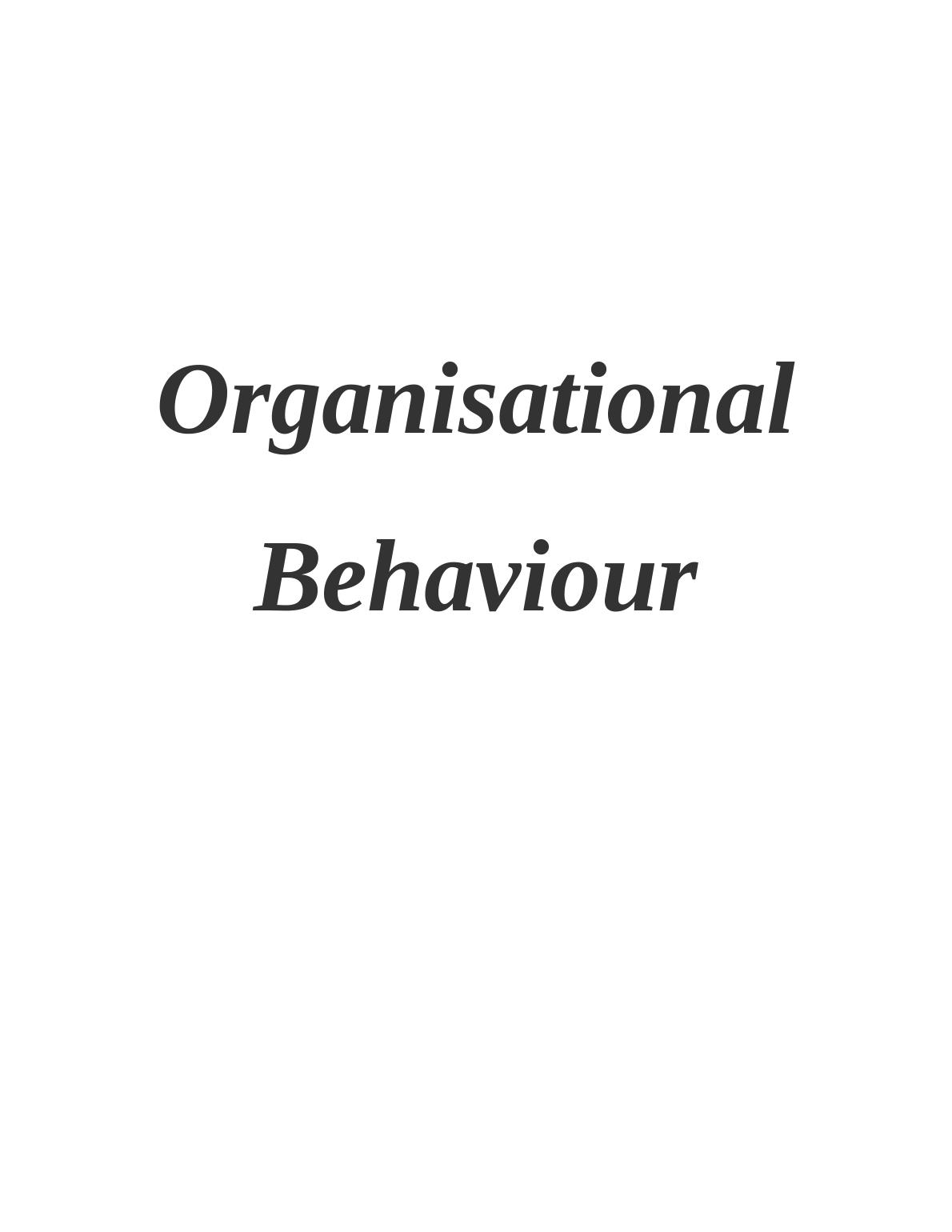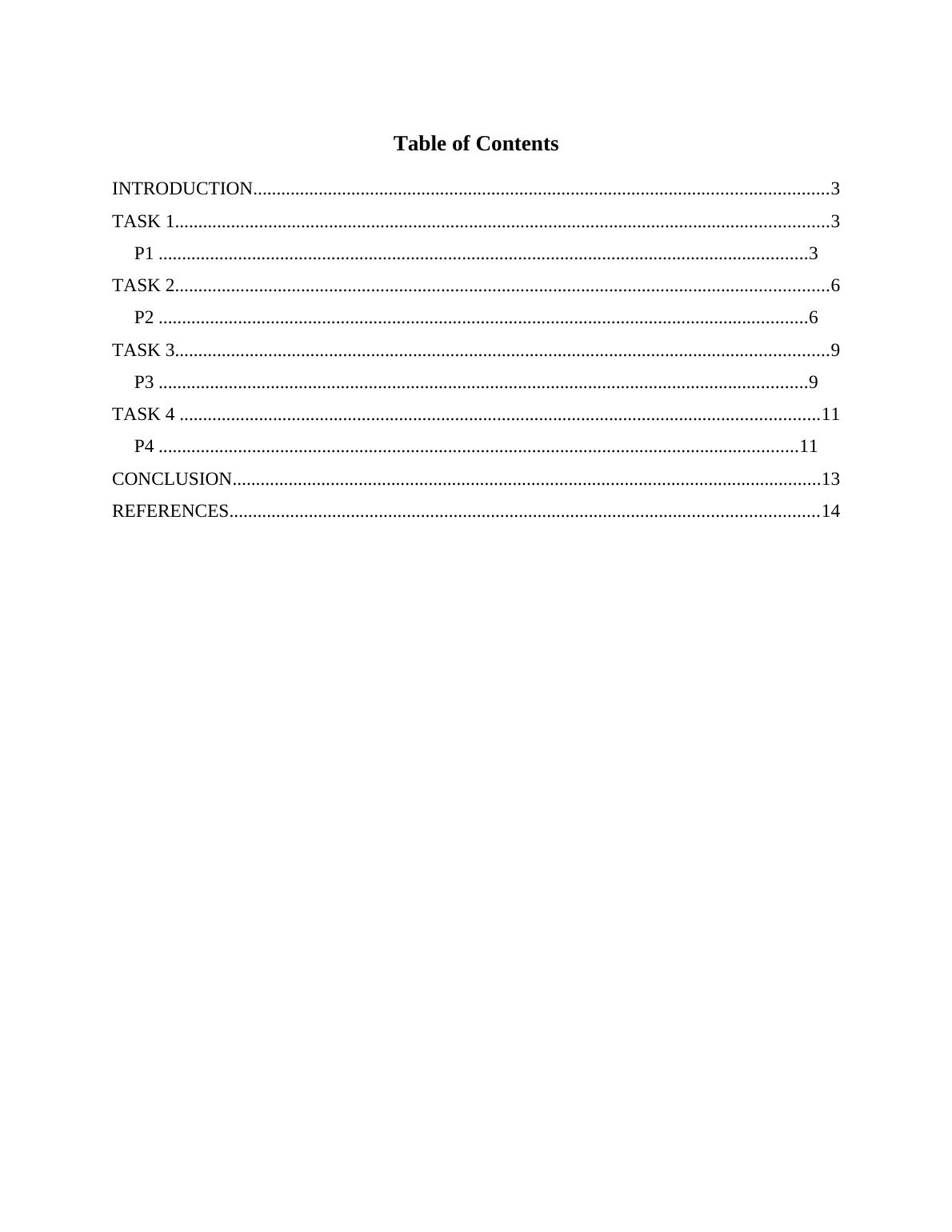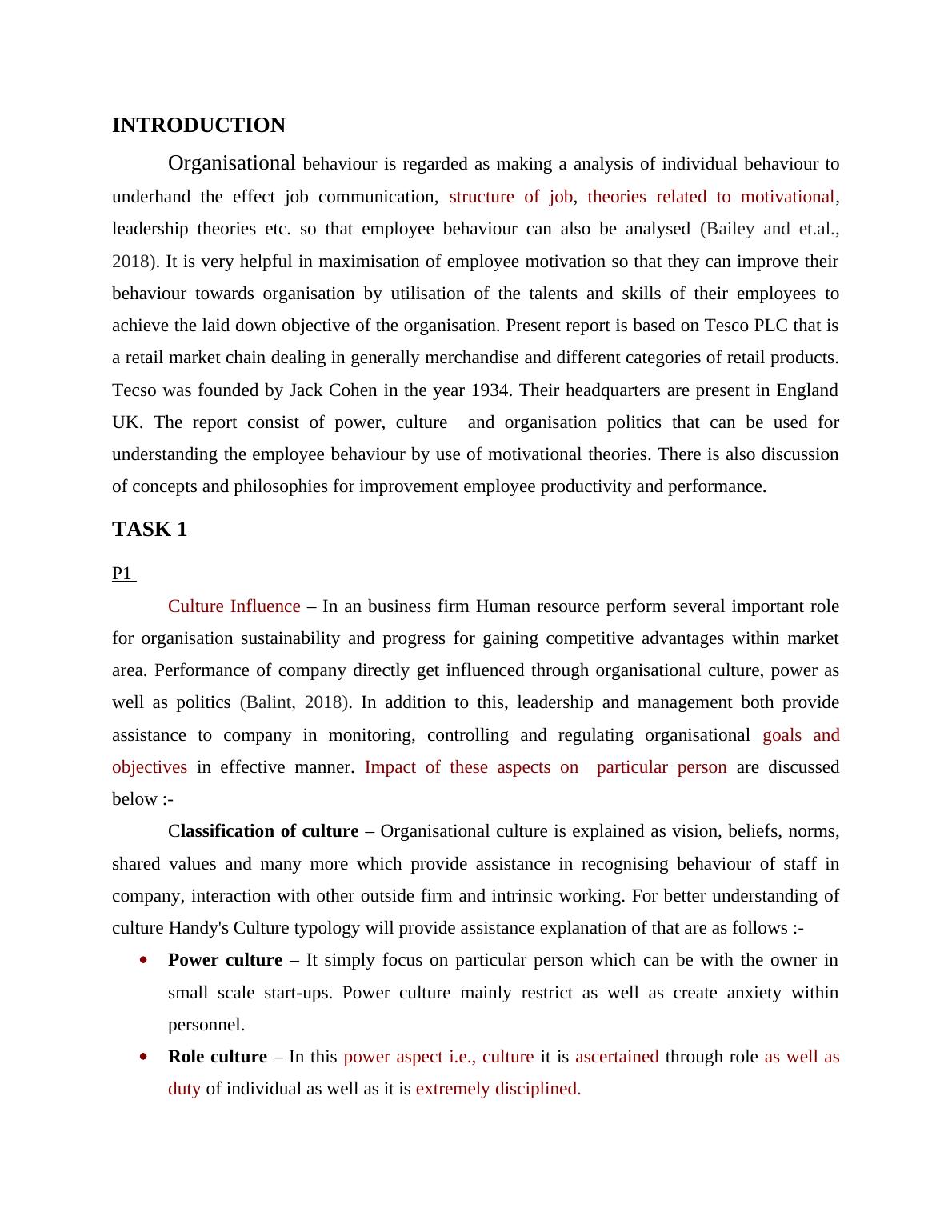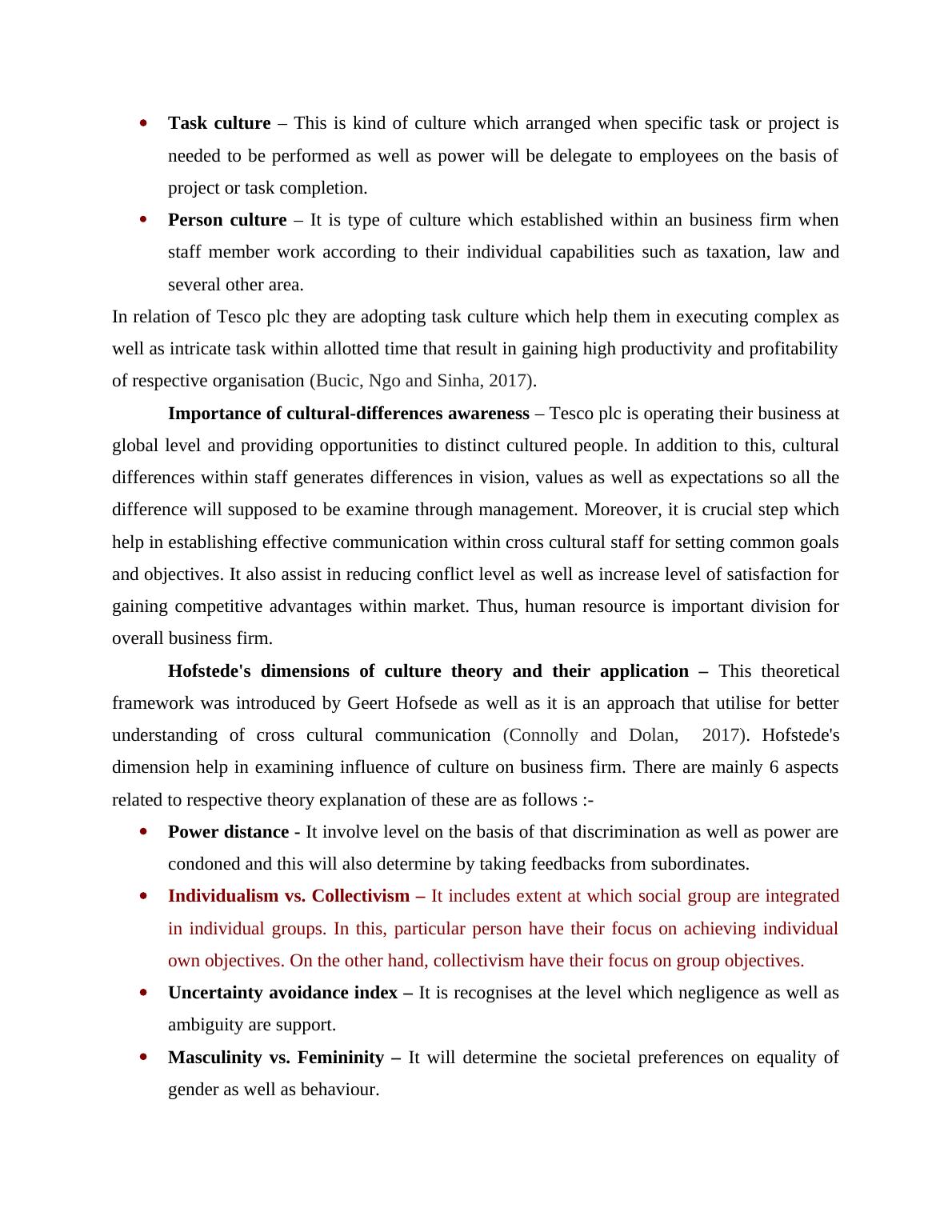Organisational Behaviour: Culture, Power, and Motivation
15 Pages4871 Words94 Views
Added on 2023-01-10
About This Document
This document explores the influence of culture, power, and motivation on organisational behaviour. It discusses different types of organisational culture, the impact of digital technology and globalisation, and various motivational theories. The document also covers the principles of network and systems theory and the concept of organisational psychology.
Organisational Behaviour: Culture, Power, and Motivation
Added on 2023-01-10
ShareRelated Documents
End of preview
Want to access all the pages? Upload your documents or become a member.
Organisational Behaviour Assignment : TESCO PLC
|16
|5302
|48
Organisational Behaviour Assignment - Telecommunication company
|15
|4903
|91
Organizational Behaviour: Factors Influencing Employees and Teams in Tesco
|13
|4345
|96
Organisational Behaviour: Influence of Culture, Politics, and Power
|15
|5176
|1
Organisational Behaviour: Impact of Culture, Politics and Power on Workers
|15
|4678
|35
Organizational Behaviour Tesco Plc
|15
|4442
|25




